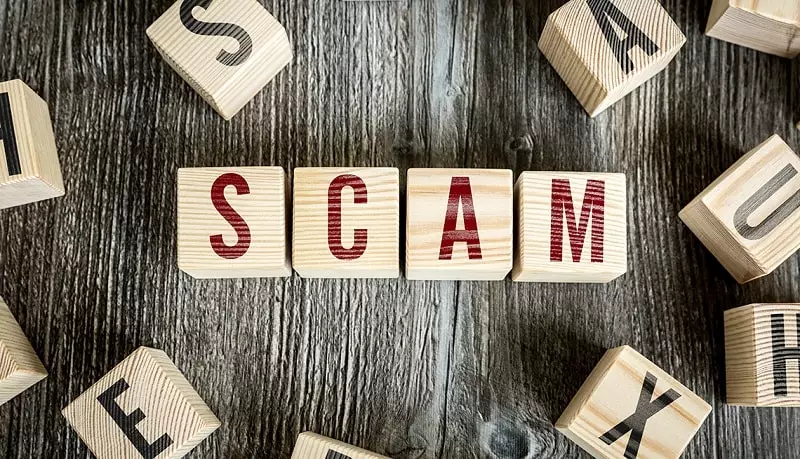What to Know About Social Security Fraud Calls
Table of Contents
- By David Lukic
- Published: Nov 25, 2020
- Last Updated: Mar 18, 2022
Scammers will use any means possible to get at your wallet and steal your identity. One of the more disturbing methods which has been making the rounds, is con artists pretending to call from the Social Security Administration, and they threaten you to give them money or information. The sad part is social security fraud calls often target senior citizens who do not know they are being scammed. The FTC reports more than 450,000 incidents per year. Roughly $10 million has been lost to this scam so far.
How Social Security Fraud Works?
Typically, a caller will ask about your social security number or say it has been suspended or blocked in connection with illegal activity, and you must call immediately to resolve it. Sometimes scammers will extort money from you in exchange for issuing you a new SSN. These social security fraud calls also come as messages left on your answering machine. The voice is a robotic caller threatening to arrest you if you don’t call back immediately.
Sometimes the caller promises an increase in social security benefits. This, too, is a scam. Nervous elders who subsist on social security benefits may fall for these scams and lose their identity or money in the process. These callers use scare tactics and cause panic in the hopes that the victim will play along because they are caught up in the emotion of fear.
Things to Remember About the SSA
The Social Security Administration never suspends or blocks social security numbers; it’s not something they do ever. Additionally, if you are about to be arrested, the government does not call to warn you or threaten you with arrest if someone else stole your SSN and used it for illegal activity. Government employees do not ever demand payment over the phone or request that you pay in gift cards, wire transfers, or cash. Regardless of what information these scammers have (they may have your social security number or a portion of it), it’s not real.

Social Security Scam Horror Stories
The Washington Post reported that some victims receive as many as nine calls per day from these fraudsters. One such message they received was:
“To avoid initial appearance before the magistrate judge [that] will lead to your Social Security number suspension, your case ID is 3392682,” the computerized voice said. “For more information on your case, please call our investigation department immediately. We would be glad to share your case information and help you with the situation. Thank you.”
From the same Washington Post article, a man named Arthur reported:
“I received a call about my Social Security number being suspended and several warrants issued for my arrest. I was highly concerned because my mother relies on Social Security benefits as she is in a nursing home. I thought this phone call was related to that. The call happened on my work cellphone, which threw me off completely. I was asked for my first and last name and my Zip code. I was nervous during the call until the person asked me to verify the last four digits of my Social Security number. I told the person (1) I don’t feel comfortable doing that, and (2) if the allegations are true, then that information should be right in front of you. This person tried to force me to give him the last four digits of my Social several times, saying someone opened 20-plus bank accounts in my name in various locations. Once the person realized I wasn’t giving out any information, he hung up on me. I wish there were something more I could do to help stop these scammers.”
Despite blocking the numbers, victims claim they call with a different number each time, and it’s impossible to avoid this frustrating harassment. Sometimes the caller ID spoofs the real number of the SSA, which is 1-800-772-1213.

How to Stay Safe from SSA Scam Calls
The FTC encourages potential victims with the following warnings:
- “Your Social Security number is not about to be suspended. You don’t have to verify your number to anyone who calls out of the blue. And your bank accounts are not about to be seized.
- SSA will never call to threaten your benefits or tell you to wire money, send cash, or put money on gift cards. Anyone who tells you to do those things is a scammer. Every time.
- The real SSA number is 1-800-772-1213, but scammers are putting that number in the caller ID. If you’re worried about what the caller says, hang up and call 1-800-772-1213 to speak to the real SSA. Even if the wait time is long, confirm with the real SSA before responding to one of these calls.
- Never give any part of your Social Security number to anyone who contacts you. Or your bank account or credit card number.”
What to Do if You Are a Victim
The Social Security Administration has set up a dedicated online form where you can report the scam. You can also contact the social security fraud hotline directly at (800) 772-1213. Some other ways to avoid social security fraud are:
- You can install a robocall blocker on your mobile phone.
- If you receive one of these calls, hang up immediately. Do not engage the caller.
- An SSA employee will never ask you for your social security number.
- Never call a number left on your answering machine where the caller claims to be from the SSA. Use the SSA’s direct number instead.
- Never give out your social security number or other personal information over the phone to anyone who calls.
- Do not click links or download suspicious attachments in email or text most likely its phishing.
- Report social security fraud calls to the SSA and the FTC.
















